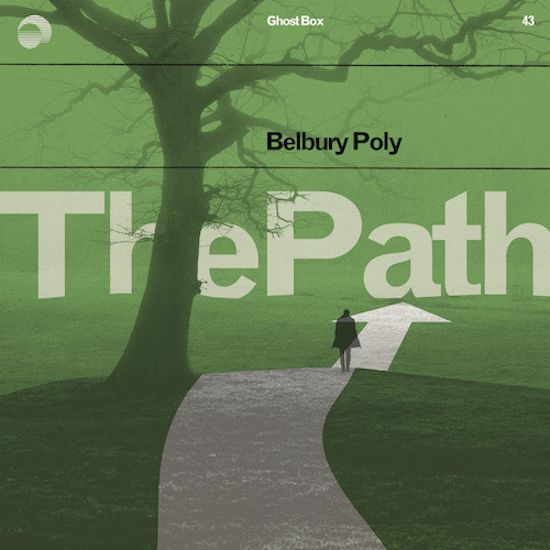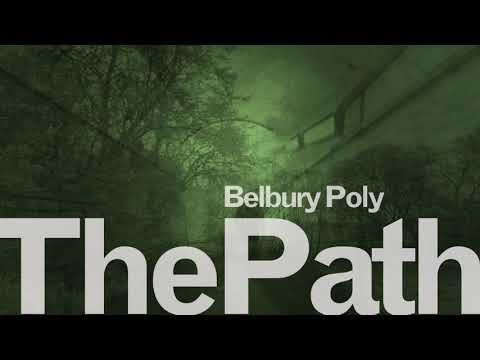Belbury Poly has evolved several times in its near twenty years of existence. What started out as the solo synth project of Ghost Box co-founder Jim Jupp grew into a band in 2012, downsized to just Jupp again a few years later, and now seemingly exists as a sort of pop-up musical collective that incorporates a spoken word artist (Justin Hopper) and Jesse Chandler of Midlake on flute and keyboards.
Mostly gone is the brittle electronica of 2020’s The Gone Away, replaced on The Path with a thicker, lusher sound that’s best characterised by Christopher Budd’s quietly groovy bass playing, Max Saidi’s laidback, jazzy percussion and Chandler’s pastoral flute. At times it’s evocative of the music composed for a 1970s British horror obscurity, the soundtrack of which would probably be released by Jonny Trunk. It’s also the most unashamedly prog thing that Ghost Box have put out to date – made even more so when you clock that at least some of the lyrics are about faeries.
Yes, faeries. Folklore has always informed both Belbury Poly and the Ghost Box roster as a whole, with The Gone Away also making nods towards this particular branch of mythology. Title track ‘The Path’ says the quiet part out loud with vocalist Justin Hopper ruminating on the connections between the middens and mounds of the past and the service stations of today: “the past inside the present” as a certain other spooky electronica act once put it.
Hopper’s voice narrates most of the tracks here. His book, The Old Weird Albion, is a recent classic of modern nature writing and he has cropped up on Ghost Box releases before, notably 2019’s gorgeous Chanctonbury Rings with folk singer Sharron Kraus, to which this acts as a kind of spiritual sequel. Where the early Ghost Box albums referenced public information films, sometimes sampling their authoritarian warnings, Hopper feels like a far more benevolent presence here, even if his usually warm and wry tones can turn chilly when he gets to a creepy bit in the album’s oblique narrative.
And so ‘Highways and Byways’ leads us “through the corn stubble and over a soft hill to a rickety bridge”, guided by the rhythm section, until we reach a motorway, here transformed into a dead-end for nature. Hopper imagines a future where new species evolve on each side, but are kept at bay from one another by the endless tides of traffic, while Jupp’s synthesiser adds a spectral element, tinkling in the air like a curse or a spell.
The brief ‘Pixie-Led’ has a shimmering South Asian element, with Budd plucking out melodies on an electric sitar as bells chime and Hopper offers an eerie warning about the dangers of stepping too far off the beaten path. ‘Blind Alley’, meanwhile, has a noir vibe with the panic-struck narrator stumbling down rain-sodden streets, his only accompaniment a moody bassline and the ominous whir of a rising and falling oscillator.
Other tracks are pure instrumentals. The title track’s library grooves land not a million miles away from Denton and Cook’s theme for BBC show Quiller, a classic of this kind of slightly stuffy suit-and-tie funk. ‘The Exile Way’, with its 70s synth sounds and distorted guitar, is the most evocative of earlier incarnations of Belbury Poly. And the album closes with ‘Last Orders’, a rousing guitar- and sitar-led piece that evokes a country fayre jam band playing their final number before stumbling off to either get a few more ciders in or enact some eldritch ritual.
Belbury Poly are following their own curious muse on this record, one which may prove a little too twee for some. Put aside that scepticism for a moment and wander with the band down these strange highways, though, and you may find yourself under the album’s peculiar, moss-scented spell.



